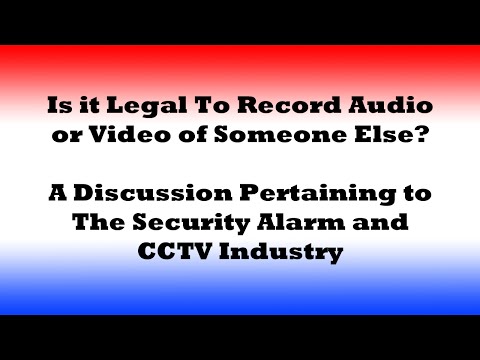
Welcome to this informative article on the laws and legal remedies for unauthorized recordings in California. It is important to note that while this article aims to provide a comprehensive overview, it is always advisable to cross-reference information with other sources or consult legal advisors for specific cases or concerns. Now, let’s dive into the intriguing world of unauthorized recordings and the legal landscape surrounding them in the state of California.
Can I File a Lawsuit in California for Unauthorized Recording? Understanding the Legal Implications
Laws and Legal Remedies for Unauthorized Recordings in California
Unauthorized recordings can be a serious violation of privacy rights in California. Understanding the legal implications of such recordings is crucial to protect yourself and seek appropriate legal remedies. In this article, we will explore the concept of filing a lawsuit in California for unauthorized recording, including the relevant laws and potential legal remedies available to victims.
📋 Content in this article
What is Considered Unauthorized Recording?
Unauthorized recording refers to the act of capturing audio or visual content without the consent of the individuals being recorded. In California, unauthorized recording is generally prohibited under both state and federal laws. It is essential to note that California is a two-party consent state, meaning that all parties involved must give their consent before any confidential communication can be recorded.
California’s Invasion of Privacy Act
The primary law governing unauthorized recording in California is the Invasion of Privacy Act (IPA). Under this law, it is illegal to record confidential communications without the consent of all parties involved. Confidential communications include any conversation conducted in circumstances where the parties have a reasonable expectation of privacy. This can include private conversations, phone calls, and other forms of communication where privacy is reasonably expected.
Legal Remedies for Unauthorized Recording
If you believe your privacy has been violated through unauthorized recording, you may have several legal remedies available to you in California. These remedies aim to compensate you for the harm caused and deter others from engaging in similar conduct in the future. Some potential legal remedies include:
What to Do if Someone is Secretly Recording You: Your Legal Rights and Actions to Take
Laws and Legal Remedies for Unauthorized Recordings in California:
In today’s technologically advanced world, it has become easier than ever for individuals to record conversations and events without the knowledge or consent of others. This raises important questions about privacy rights and the legality of such recordings. In the state of California, laws exist to protect individuals from unauthorized recordings and provide legal remedies for those who have been subjected to such actions.
1. Understanding California’s Two-Party Consent Law:
California is considered a “two-party consent” state, meaning that all parties involved in a private conversation must give their consent before any recording can take place. This applies to both in-person conversations and phone calls. If someone is secretly recording you without your knowledge or consent, they may be violating California law.
2. Your Legal Rights:
If you discover that someone has been secretly recording you, it is important to understand your legal rights. In California, you have the right to:
3. Legal Actions to Take:
If you discover that you have been secretly recorded, there are several legal actions you can take to protect your rights and seek justice:
Title: Understanding Laws and Legal Remedies for Unauthorized Recordings in California
Introduction:
In today’s digital age, the unauthorized recording of conversations, images, or videos has become easier than ever before. As a result, it is crucial to be knowledgeable about the laws and legal remedies surrounding unauthorized recordings in California. This article aims to provide a comprehensive overview of these laws and the available legal remedies. However, readers are strongly advised to verify and cross-reference the information provided, as laws can change and specific circumstances may require tailored legal advice.
I. The California Invasion of Privacy Act (CIPA):
The California Invasion of Privacy Act (CIPA), found in California Penal Code Section 630-637.5, serves as the primary law governing unauthorized recordings in the state. The CIPA establishes the following key principles:
1. Consent Requirement:
Under the CIPA, it is generally illegal to record confidential conversations without the consent of all parties involved. California is one of the few states that requires all parties to consent to a recording. This means that if you intend to record a conversation secretly, you must obtain the consent of all participants beforehand.
2. Confidential Communications:
The CIPA protects communications that are considered confidential. A confidential communication is one where the parties have a reasonable expectation that their conversation is not being overheard or recorded by anyone else.
II. Exceptions to Consent Requirement:
While the default rule in California is that all parties must consent to a recording, certain exceptions exist:
1. Law Enforcement:
Law enforcement officials may conduct authorized recordings without obtaining consent in specific circumstances related to ongoing criminal investigations.
2. Public Meetings:
Recordings made during public meetings, such as government proceedings, open hearings, or town hall meetings, are generally exempt from the consent requirement.
III. Legal Remedies for Unauthorized Recordings:
If someone violates the CIPA by making an unauthorized recording, there are several legal remedies available:
1.
